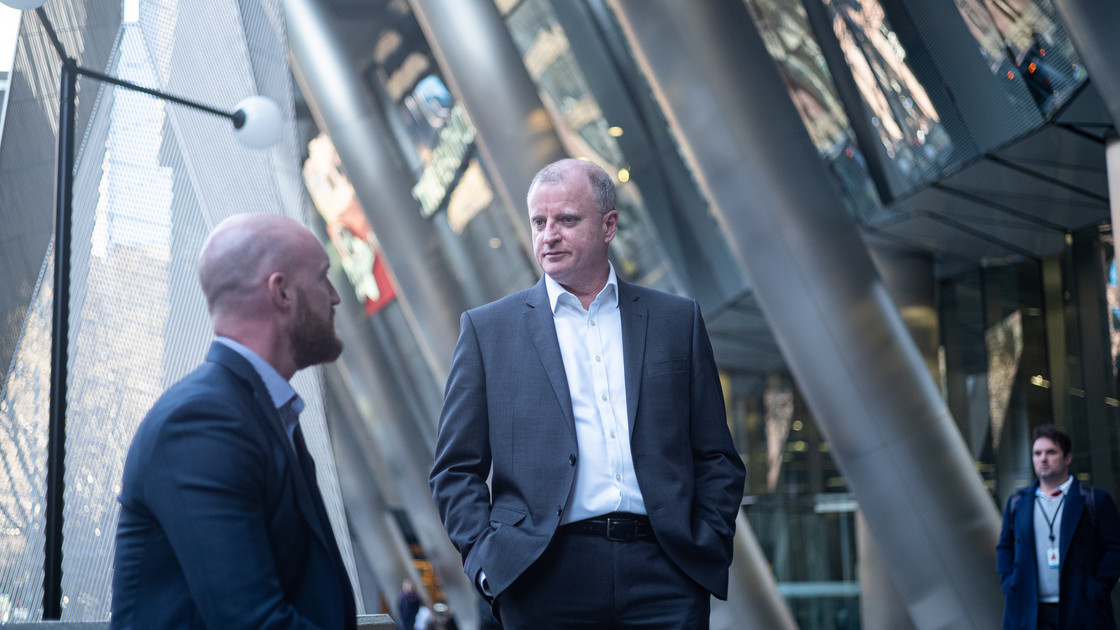Tips on how to prepare your business for an uncertain future

With lulls in business and borrowing, layoffs and lockdowns, COVID-19 has caused its fair share of upsets for brokers, lenders and consumers.
One thing is certain, however—COVID-19 has been a catalyst for change.
Commercial finance broker and CAFBA board member George Karam of BF Money, and asset finance broker Ashley Smith of ASA Finance Group, detail the changes they’ve made in their businesses off the back of the challenges and opportunities they’ve encountered during COVID-19.
4 steps for preparing your business and clients for uncertain times
1. Reconnect with clients
At the beginning of the outbreak in Australia, Ashley received up to 100 requests for loan deferrals over a couple of weeks, something he chalks up to the fear and uncertainty people were feeling at the time. A few months later, about 80-90 per cent of those clients have paid back what was owed and resumed their regular repayment schedules.
“That work was not income-generating, but it was relationship-building, which was so important during that time. The biggest challenge now is rebuilding business confidence. We need to see that pick up and have people investing and buying again,” he said.
With a lull in business in mid-July, Ashley started going through his client list, calling about 10-15 people a day. “I’m not sniffing around for a deal, I’m just checking in to see how the client is doing and how their business is going. It lets them know that I’m here and available if they need me.”
As a result of these check-ins, he’s gained some useful insights about his clients and his own business, including which industries he should focus on and how to better tailor his marketing strategy to reach new clients.
“It’s helped me step back a little bit and assess my business. I’m doing a bit of planning of where we want to go and who we want to be,” he said.
2. Focus on what you do best
As BF Money’s regular leads started drying up, George decided that rather than taking whatever enquiries came their way, they would instead stick to their tried-and-true business model—commercial property finance.
“I told my team, ‘Now isn’t the time to experiment, if it’s not the right deal or client for us, we have to cut it off. Let’s stick to what we know really well and do it even better,’” he said.
“We like to play where we can add the most value, rather than trying to compete to prove our value proposition,” he said. The strategy paid off with a record number of transactions a few weeks ago.
3. Manage clients’ expectations
With lenders changing their policies and credit appetites frequently, it’s important to prepare clients for delays and disruptions.
“We used to do a deal in two days. In June, we were looking at two weeks or more,” Ashley said. “If you’ve been dealing with a client for five years and they’re used to getting their deal done almost immediately, telling them they have to wait another two weeks puts tremendous strain on the relationship.”
George agreed that brokers’ communication with clients needs to be on point, which is how BF Money defined itself as a consultant to clients during COVID-19.
But being a good communicator also means being able to have uncomfortable conversations.
“If clients aren’t really engaged with you or they’re wasting your time, tell them it’s not going to work. You need to be efficient, so you’re not spending your time on so many files with a low likelihood of success. We’re never shy about putting a stop to things,” he said.
4. Invest in your business
With some resources freed up, BF Money launched a new website, improved procedures, workflows and documentation, and started building its own IT system.
“Now is the time to show the community, your clients and lenders what you do well and demonstrate it day in and day out. Any time that you have, invest that in yourself, your own knowledge, and into your own business, upskill don’t upsell, that needs to be the focus,” George said.
Ashley said he’s been treating his business as though it just opened by focusing on client recruitment and retention, evaluating and renewing referrer relationships while cutting back on ones that weren’t working, and increasing his marketing spend.
“Since I’m not literally writing and grinding out deals all day long, I can sit and assess and see where we want to be, and hopefully this will set us up for another two to three years of success.”
Remaining optimistic despite the challenges
While neither broker knows what will happen next, both have done their best to remain optimistic and agile, embracing the challenges of COVID-19 to identify new opportunities for growth and success.
Don’t miss Connective’s next State of the Industry webinar on loan deferrals and the best interests duty on August 26.
Register now